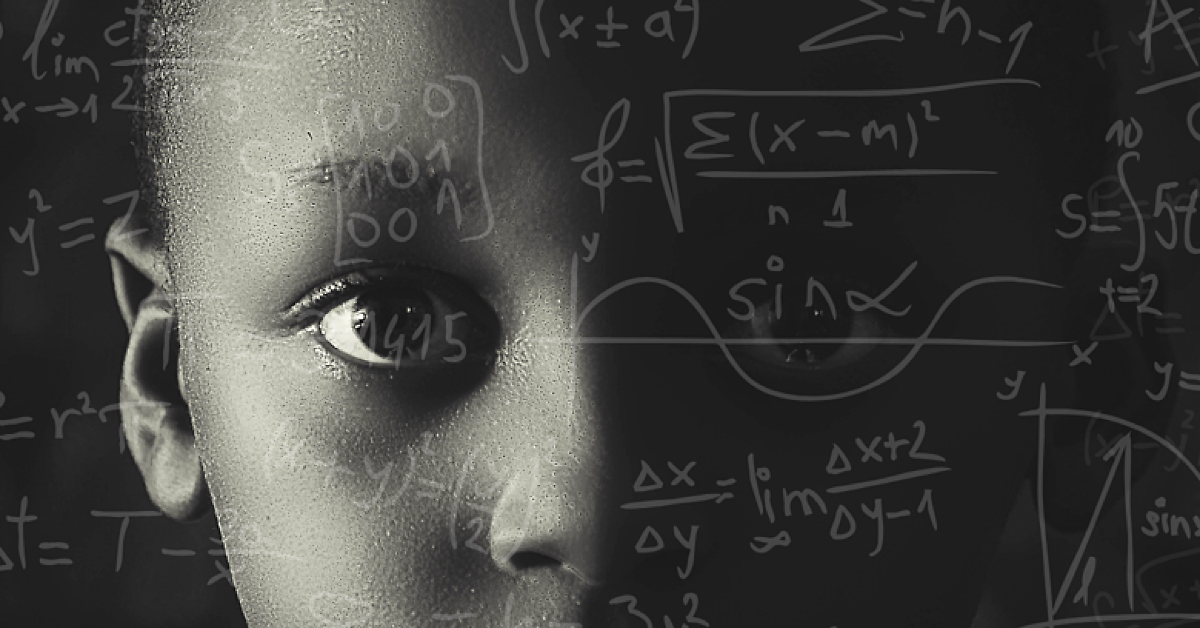
Nov 1, 2023 2:14:28 PM
In the aftermath of a global pandemic, there emerges an issue that has persisted far longer and yet remains largely unaddressed: the ever-widening mathematical gap faced by Black students in the U.S. The country has seen a decline in math scores since the onset of the pandemic, but for Black children, this is just the tip of a longstanding white iceberg of systemic failure. And it beckons us to question, does the system believe Black children are inherently incapable in mathematics, i.e., do we think Black children are mathematically stupid? If that’s the belief, then it not only betrays its own ignorance but is a gross misreading of history and potential.
Does the system believe Black children are inherently incapable in mathematics? Do we think Black children are mathematically stupid?
Long before the complexities of today's mathematics emerged, the foundation was being laid on the African continent. The sophisticated geometry etched in the architecture of the ancient pyramids and the early arithmetic found on the papyrus scrolls of Egypt stand testament to a time when Black minds pioneered mathematical concepts. In the heartlands of Mali,Timbuktu once flourished as an academic hub, with scholars from around the world seeking knowledge. These mathematical achievements are not just part of Black history but are woven into the very fabric of human advancement. It's a heritage that Black children carry in their DNA, making it all the more tragic when a system blinds them to their own legacy. It’s a system full of excuses and limited on solutions.
The way we fund schools, primarily through property taxes, guarantees that children in wealthier districts get more resources. This inequitable system ensures that many Black children, often living in districts with lower property values, are starved of resources from the outset. Thus, a system that was designed to fail them from the start bears no surprise when it does. The system is doing what it is designed to do!
“We can't address the mathematical experiences of Black children without addressing racism."
~ Dr. Danny Martin
Black scholars have time and again voiced concerns, offered solutions, and demonstrated the capability of Black children when given the right opportunities and resources. Dr. Danny Martin, a prominent figure in the field, once said, “We can't address the mathematical experiences of Black children without addressing racism." Robert Moses of the Algebra Project championed math literacy as a civil right, ensuring young minds understand that mathematics is within their cultural and ancestral grasp.
It is almost ironic when you consider that mathematics, in its earliest form, was conceived in Africa. Figures like the late Abdullalim Shabazz, a prodigious mathematician once responsible for over 80% of Black math PhDs, serve as a testament to the deep mathematical roots that originate from the continent. Yet, our system appears to disregard this legacy and acts on the assumption that Black children can't excel in the subject. As Harriette Ball, the inspiration behind the teaching methods of Kipp Academy, often expressed, "Every child is a promise." It's a sentiment that our educational system seems to have forgotten.
The question remains:
Does the system not care, or does it believe Black children are mathematically inept?
Perhaps it's both. Whatever the reason, the ongoing failure to address these disparities is nothing short of a national disgrace, but that’s par for the course considering our current political landscape that’s sunbathing in the MAGA horizon.
In stark contrast, programs like Black Math Genius demonstrate what's possible when you approach the education of Black children with respect, understanding, and care. By teaching mathematics with a deep conceptual understanding, recognizing the rich history and culture of Black students, and offering patience while building confidence, they are laying down the blueprint for what effective math education can and should look like.
If there’s one takeaway, it's this: We need to stop questioning the capabilities of Black children and start questioning the system that continues to fail them. The genius of Black children is waiting to be unlocked, and it's about time we gave them the key. In fact, it’s essential to understand that White people can’t be the gatekeepers either.
Assata Moore is educator and author who advocates for educating young Black children, using math as the driving force. She believes in the supreme intelligence of Black children because she has seen it time and time again. As a teacher and principal, she traveled the world teaching other teachers how to teach Mathematics, physics, and engineering in a fun and engaging way; effective leadership; and systems and strategies for running a successful school. She has a Mathematics degree from Michigan State University where she also served as the program coordinator. In 2009, she was voted one of the top Mathematics teachers in the state of Illinois and, under the Obama Administration, Assata received the Presidential Award for Excellence in Mathematics and Science Teaching. In 2015, under the direction of Michelle Obama, she revisited the White House for a college conference initiative. Her workshops and speaking engagements are what she calls, “EduAction”. You will be educated and you will put that learning into action.
Few issues in education spark more tension and debate than standardized testing. Are they a tool for equity or a burden on students? A necessary check on school systems or a flawed measure of...
Charter schools are public schools with a purpose. Operating independently from traditional school districts, they're tuition-free, open to all students, and publicly funded—but with more flexibility...
Despite the benefits of a diverse teaching force, prospective teachers of color fall out of our leaky preparation pipeline at every stage: preparation, hiring, induction, and retention. Here’s what...
Ed Post is the flagship website platform of brightbeam, a 501(c3) network of education activists and influencers demanding a better education and a brighter future for every child.
© 2020-2025 brightbeam. All rights reserved.
Leave a Comment